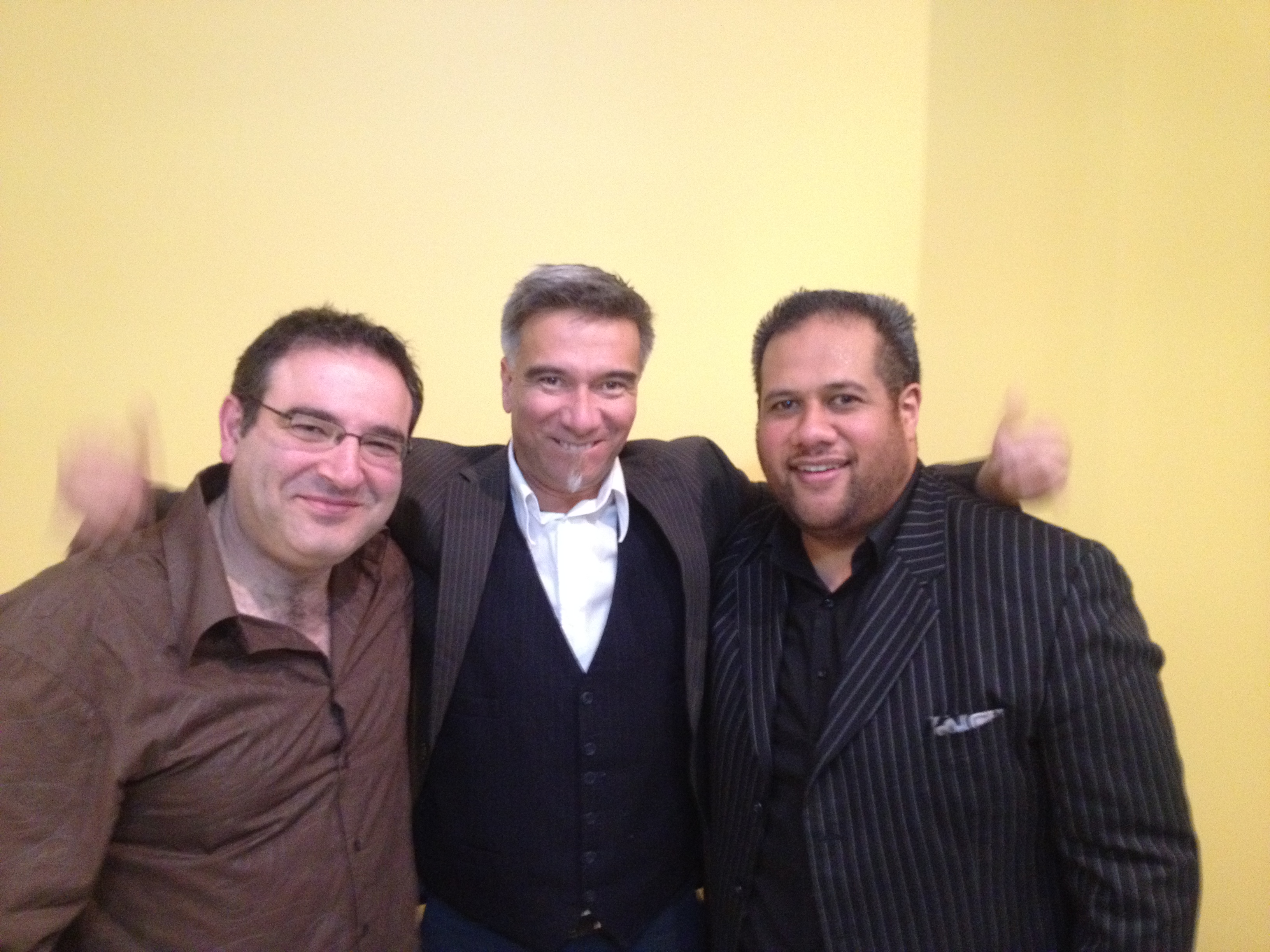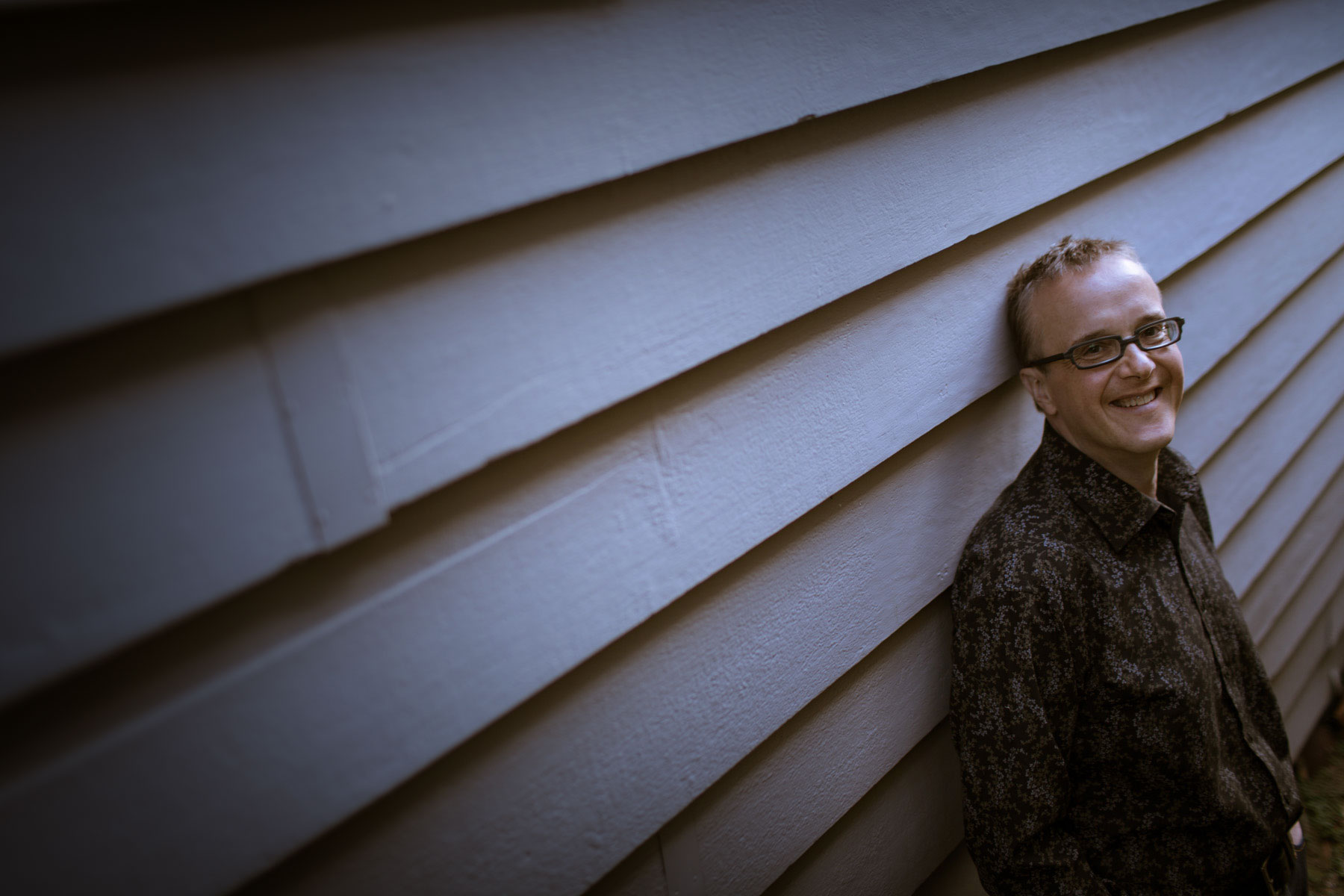The most important role?
02 August 2013 by Marc Taddei
(L-R Composer John Psathas, Singer-Songwriter Warren Maxwell, Bass Jonathan Lemalu)
For me, one of my most important roles as a Music Director is to support great composition. In terms of the standard repertoire this is a fairly simple exercise. There are clear works of genius that are vitally important to orchestral music and many of these are monuments in music history and thoroughly deserving of performance. It is slightly more challenging when one moves away from standard repertoire but with enough trust built up with the community over time, audience members come to welcome our choices.
Even so, these choices (as gratifying as they may be) are not what I consider to be a music director’s most important role in terms of support. I am referring to the work of living composers – specifically composers that I have a strong belief in. These do not have to be composers that I work with but they are composers that I believe offer something of great pertinence and beauty. Here in New Zealand we have an amazing composing scene – many of our best practitioners have world-wide reputations and their contributions alongside lesser known composers and strong composer advocacy groups such as SOUNZ make for a particularly vibrant and open community. New Zealand is also home to two fabulous contemporary music groups (Stroma and 175 East) who do much to keep the scene in the public’s ear.
I am proud of the composer in residence schemes that have been devised for Orchestra Wellington. Unusually, we have three! Our composer in residence for 2013 is David Downes, our emerging composer in residence is Karlo Margetic and our education composer in residence is Thomas Goss. All three of these composers are commissioned to write major works for the orchestra, with premieres in the following season. Former composers in residence have included Chis Gendall and Juliet Palmer. For the most part these positions are for one year and offer a commission, a title and the opportunity to work closely with the artistic management of Orchestra Wellington. I am also keen on introducing these composers to our audience. It has been my experience that our concert goers are fascinated by these artists and are keen to hear of their inspiration. I certainly think that it humanizes the composers and brings resonance to the experience of the listeners. I like the idea of creating an opportunity for dialogue with a far broader cross section of the community than composers often get. As a result of these positions, we are currently working on a CD release of the first of our commissions and this will be announced in 2014.
There is another kind of composer that I like to support and this only happens in very specific circumstances. I am referring to long term commitments to composers for whom I have only the highest regard – composers that I believe are (pardon the worn out phrase) world-class and whose compositions have something of great substance about them. This kind of relationship can only happen with personal and professional connections and a willingness to work together over time.
There are number of composers of world-renown in New Zealand – certainly the brilliant Gareth Farr must be included – and for me, John Psathas is also one of these very special artists. I have made it a priority to programme John’s music in both of the orchestras for which I have served as music director. His works have never failed to inspire great fervor and excitement for audiences. As a result of the immediate connection that his music inspires, I have made him the subject of season long composer focuses in two orchestras, have premiered his music overseas and have commissioned a major work that was subsequently shared between the major regional orchestras in New Zealand in a successful example of collaboration between the organizations. Over the past few years, I have featured at least one of his compositions in each of our subscription series and in addition to conducting the Vodafone Classical Album of the Year winning, “View from Olympus” there are plans afoot to record more of his vital music.
I count myself fortunate that in my role as Music Director I have had the pleasure and honor of doing what little I can to grow relationships with composers. Is this the most important role of a music director? No – clearly audience connection through programing and excellence in performance is the sine qua non of a music director but the idea of bringing today’s composers to the attention of our community certainly gives our offerings a sense of belonging to the culture of today and as such are a hugely important part of an orchestra’s role.
